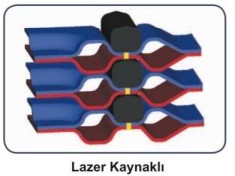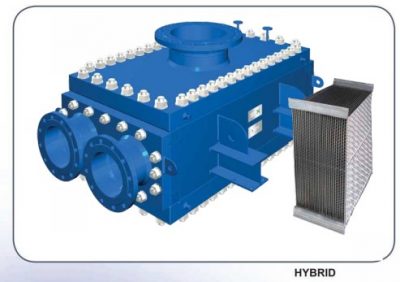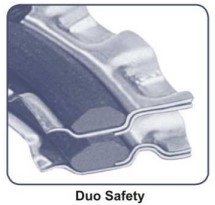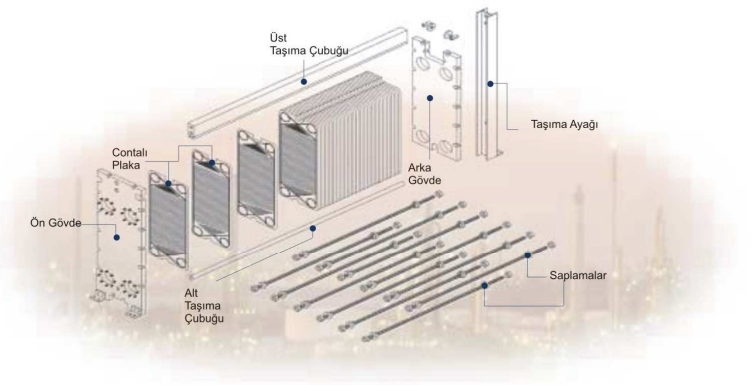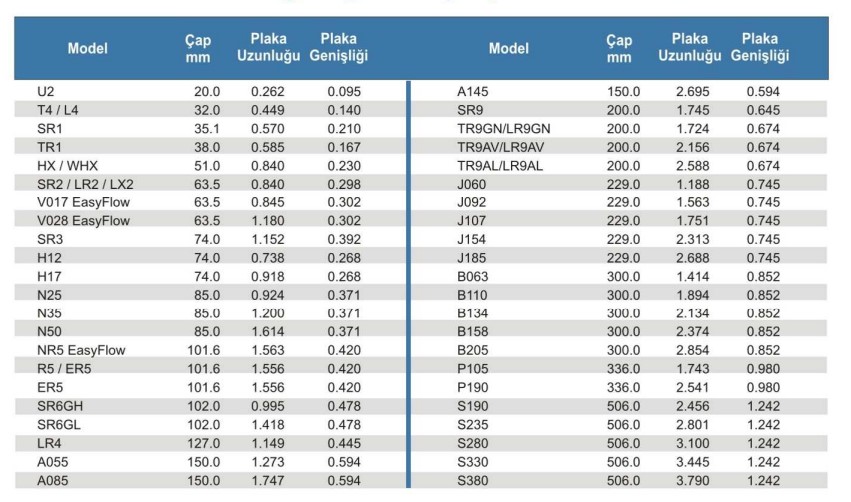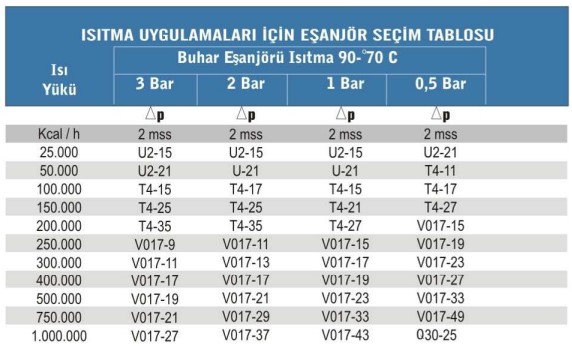“Fighting Corrosion and Ensuring Efficiency in the Toughest Applications with Industrial Plate Heat Exchangers”
Our experienced engineers work with you at every step, from system design to inception and beyond guaranteeing your specific product, offering you customized solutions.
Advantages of Industrial Plate Heat Exchangers:
- Variety of plate and gasket options to respond to aggressive fluid applications.
- Required with high thermal efficiency, saving money by reducing the heat transfer area.
- Provides up to 97% heat savings
- Eliminates the complex maintenance required for X-ray, ultrasonic and other non-destructive testing procedures
- Fixed parts eliminate vibration and reduce maintenance
- Lower investment cost compared to traditional piped system
- Space-saving with its compact design
- Reduces lifecycle cost
Plate Heat Exchangers Materials
- Gasket Material
- Paradur (Fluoropolymer)
- Paracent (FDA compliant fluoropolymer
- EPDM
- Silicon
- Paratemp (EPDM hardening of the resin)
- EPDM hardening of peroxide
- Paramine
- Paranile Paracil Paraprene
- Parator
- Plate Materials
- Stainless Steel (Gr. 304, 316, 317,304L, 316L, 317 TI)
- Alloy AL6XN ,
- Alloy 904L
- Alloy 27-7MO
- Alloy 254 SMO
- Nickel Alloys
- Nickel 200
- Alloy G-30
- Alloy B-2
- Alloy C-22
- Alloy C-276
- Alloy C-2000
- Alloy 33
- Others
- Titanium (Gr.1)
- Titanium Palladium (Gr. 7 and 11)
 Stainless Steel Products
Stainless Steel Products Mixing
Mixing Pumps
Pumps Heat Exchangers
Heat Exchangers System Solutions
System Solutions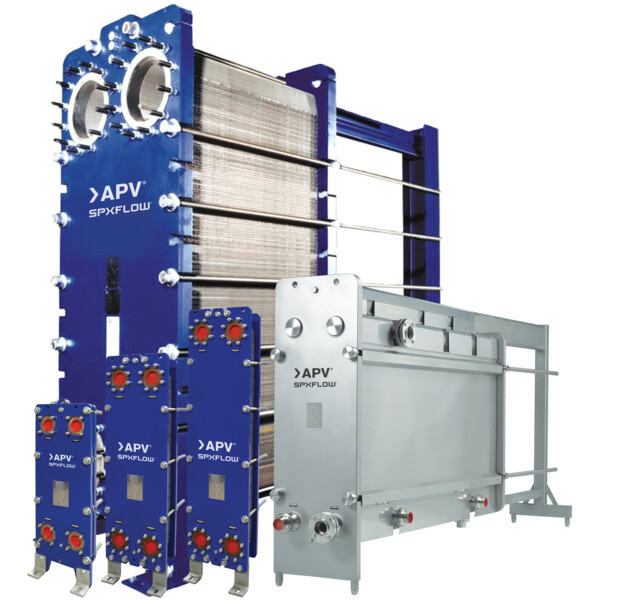
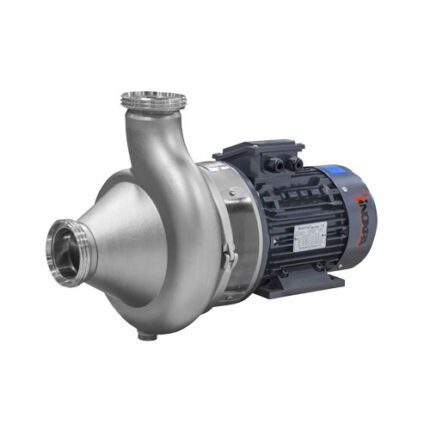
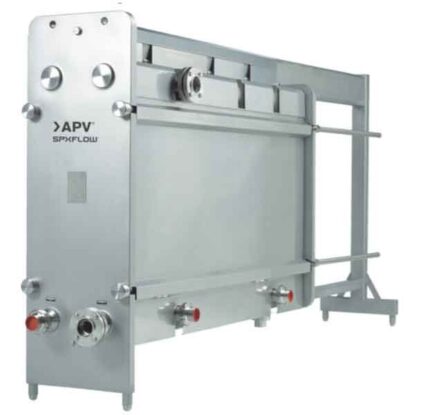
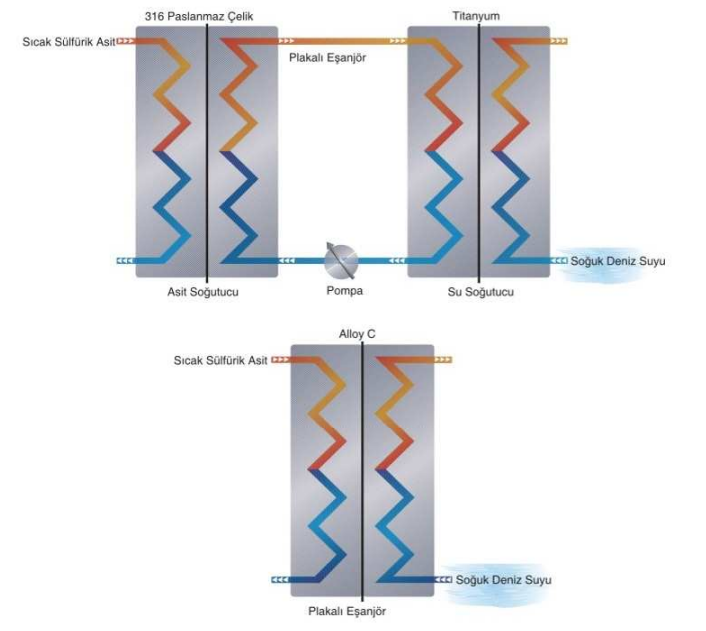
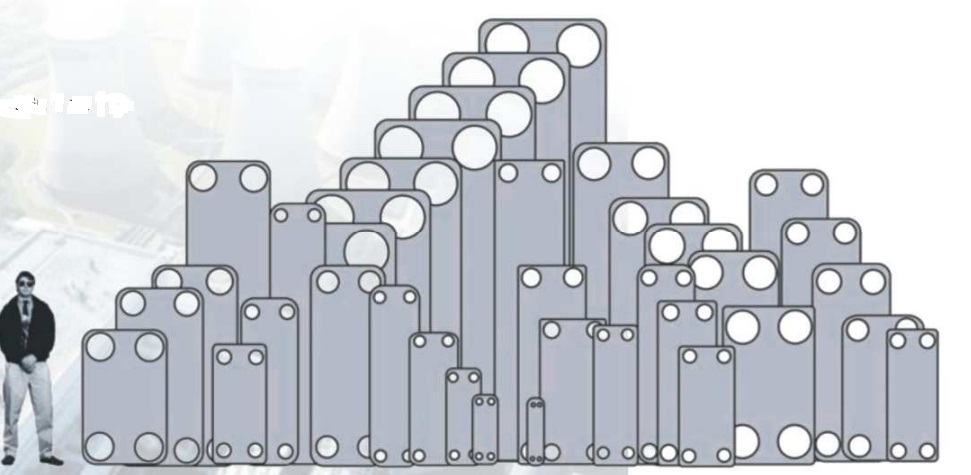
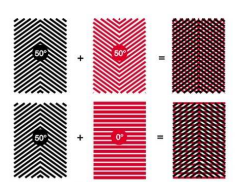 By combining the plates pressed at different angles, it is possible to obtain different flow rates in a single Plate Heat Exchanger, and the thermal efficiency and heat transfer capacity can be increased.
By combining the plates pressed at different angles, it is possible to obtain different flow rates in a single Plate Heat Exchanger, and the thermal efficiency and heat transfer capacity can be increased.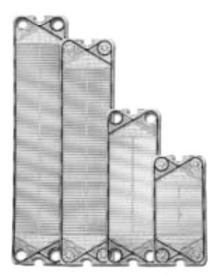 Gaskets
Gaskets